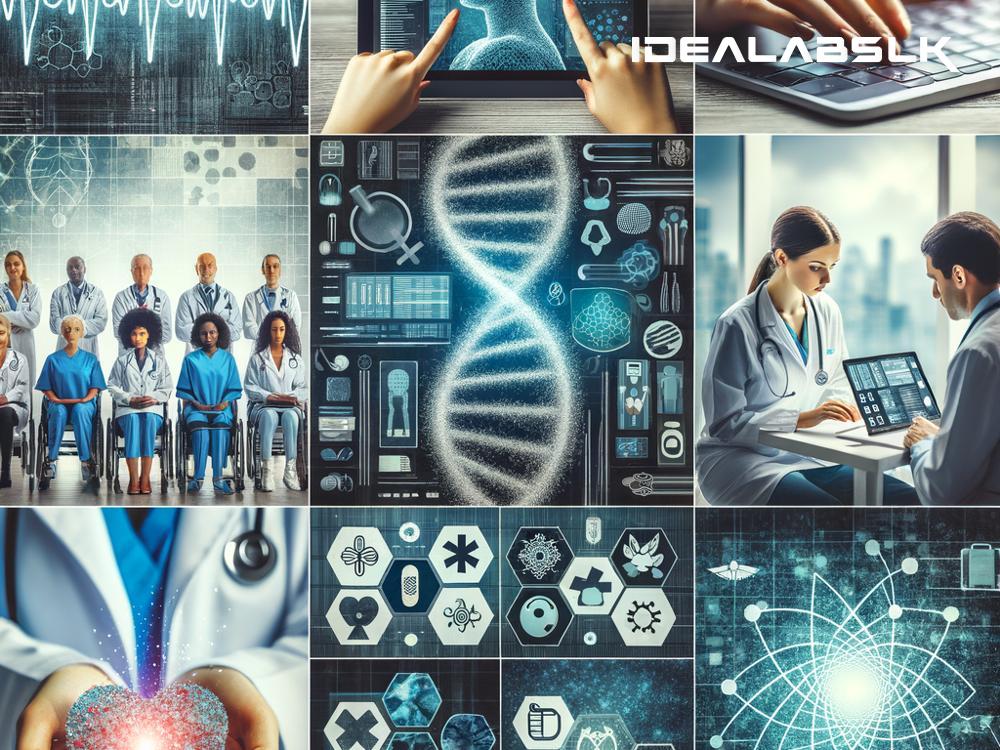Title: A Beginner's Guide to AI and Personalized Medicine: The Future of Tailored Treatment
In recent years, the integration of artificial intelligence (AI) into healthcare has been a game-changer, especially in the realm of personalized medicine. But what exactly does this mean? In simple terms, personalized medicine is a modern approach to patient care that considers individual differences in genes, environment, and lifestyle. And with AI's help, this concept is evolving rapidly, offering the promise of highly customized treatment plans that can lead to better health outcomes. This article will dive into the role of AI in personalized medicine and how technology is transforming the landscape of medical treatment.
How AI is Making a Difference
Imagine having a treatment plan that's designed uniquely for you, considering every tiny bit of your genetic makeup, lifestyle habits, and even the environment you live in. That's the promise of personalized medicine, facilitated by the power of AI. Here's how AI is making a difference:
1. Understanding Genetic Information
Every human being has a unique genetic code that holds the key to how diseases affect us and how we respond to treatments. AI algorithms are superb at analyzing vast amounts of genetic data from patients. This analysis can predict the risk of developing certain diseases and how patients might respond to different medications, leading to more accurate and efficient treatment plans.
2. Developing Customized Treatment Plans
With insights gained from genetic data, AI can help healthcare providers create treatment plans that are specifically tailored to the individual. For example, in cancer treatment, AI can analyze the genetic makeup of a tumor to identify the most effective medications, reducing the trial-and-error approach and improving outcomes for patients.
3. Monitoring and Adjusting Treatment in Real-Time
The benefits of AI in personalized medicine don't stop at diagnosis and initial treatment planning. Wearable devices and mobile apps, powered by AI algorithms, can continuously monitor patient data, such as blood pressure, heart rate, and glucose levels. This data can then be used to adjust treatments in real-time, ensuring that they remain optimal as a patient's condition changes.
The Impact of AI in Personalized Medicine
The integration of AI into personalized medicine is not just about fancy technology; it's about real-world benefits. Here's what the impact looks like:
- Better Health Outcomes: By tailoring treatments to individual needs, patients are likely to see better health outcomes. Diseases can be detected earlier, and treatments can be more effective, with fewer side effects.
- Efficiency and Cost Reduction: AI can streamline the diagnostic and treatment planning process, saving time and potentially reducing healthcare costs. With more accurate diagnoses and treatments, healthcare resources can be utilized more effectively.
- Empowering Patients: Personalized medicine, powered by AI, places patients at the center of their care. By understanding their genetic risks and how they can impact health, individuals can make informed decisions about their lifestyle and treatment options.
Challenges and Considerations
While the benefits are substantial, there are also challenges to consider. Privacy and security of genetic and personal health data are major concerns. Ensuring that this sensitive information is protected is paramount as we move forward with AI in healthcare. Additionally, there's the question of accessibility—making sure these advanced treatments are available to everyone, not just those who can afford them.
The Future Is Now
The integration of AI into personalized medicine is not a distant dream—it's happening now. With ongoing advancements in technology, the future of healthcare looks promising, with treatments that are more personalized, effective, and patient-centered than ever before. As we navigate this exciting transformation, the focus must remain on harnessing the power of AI responsibly, with an ongoing commitment to improving health outcomes for all.
In conclusion, the role of AI in personalized medicine is a shining example of how technology can revolutionize healthcare. By taking a personalized approach to treatment plans, we're on the brink of a new era in medicine, one where treatments are not only more effective but also safer and more patient-friendly. As we continue to unravel the potential of AI in healthcare, the promise of personalized medicine becomes more vivid, offering hope for a future where healthcare is tailored to the unique needs of every individual.

